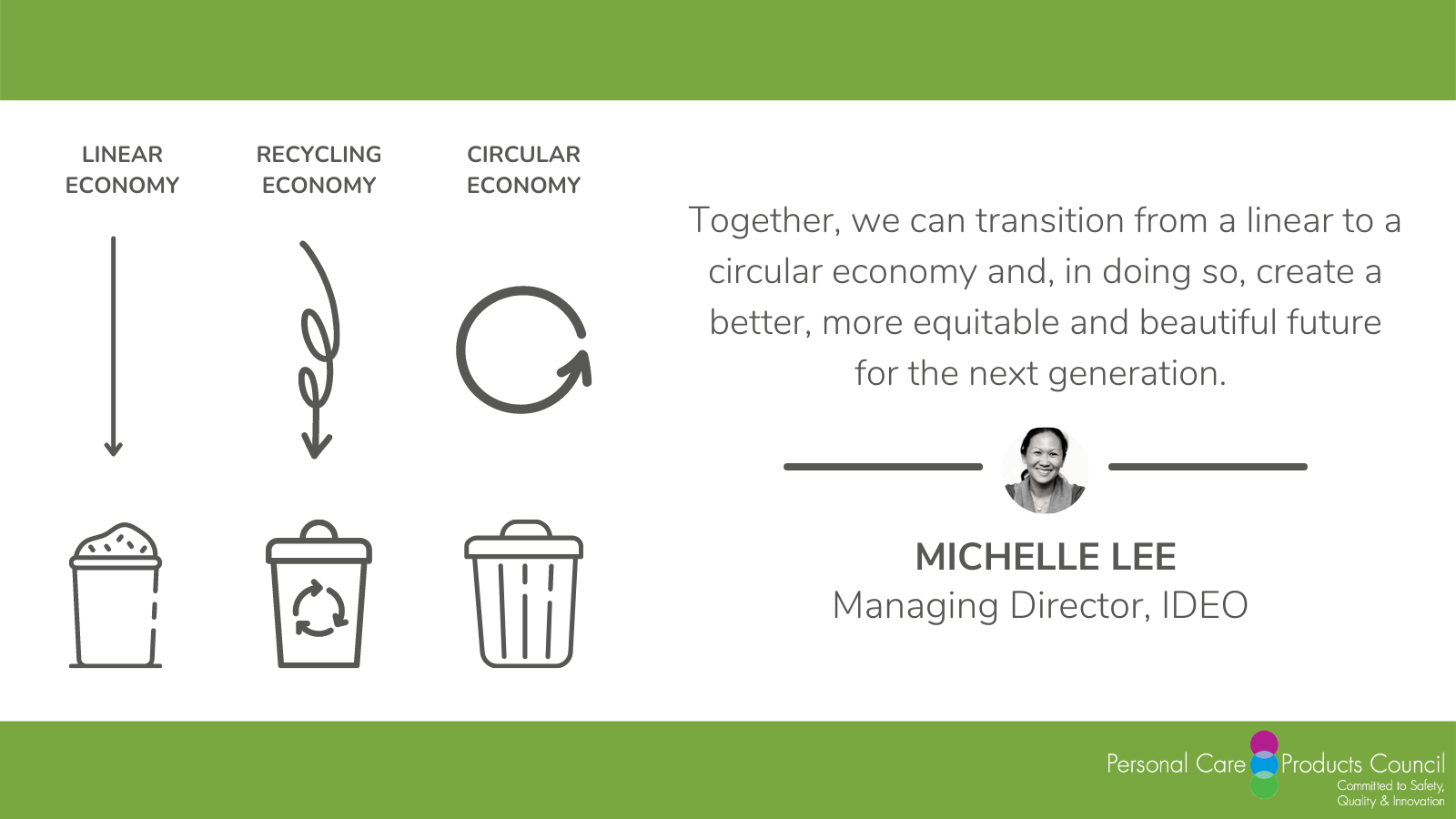Designing a Circular Future with Optimism
by Michelle Lee
Managing Director, IDEO
Over the last century, we’ve designed a culture of convenience: We process raw materials, use them for a finite amount of time and then dispose of them without much thought as to the waste we are creating. But now, there’s a growing consciousness around the impact this is having on our world, and we find ourselves amidst a pressing shift in both mindset and practice.
In my role at IDEO, a human-centered design firm known for work ranging from the first Apple mouse to a more equitable voting system in Los Angeles, I see this as an incredible opportunity for design and innovation – a chance to rethink and improve processes that have been in place for decades. As we spread this playful mindset across a breadth of industries, I am inspired by the steps I see organizations taking to actively contribute to a circular economy.
How the move toward a circular economy is taking shape
Our current economy is linear – materials are extracted from the earth, put into production, used and then discarded. Some are recycled, but the vast majority end up in landfills. The result is the accumulation of massive amounts of waste, which, at some point, Earth simply won’t be able to handle. A circular economy, on the other hand, bends this line to create a continuous circle with no end. Materials return to circulation after use so they never end up in landfills.
There are three primary ways manufacturers are approaching this challenge:
- package elimination,
- package reuse and/or
- material circulation.
These circular design principles – eliminate, reuse, and circulate – can be applied at every stage of the value chain by asking thoughtful questions and pushing for innovative answers from every member of the team. For example:
- How might we shift to bio-based or fully recyclable materials?
- How might we increase resource recovery by designing products for disassembly?
- How might we extend the life of a product through more durable engineering and design?
- How might we reduce costs and increase efficiencies by eliminating packaging materials?
- How might we begin to track product life cycles to inform smarter production?
- How might we create new systems to return or reuse products and packaging?
We’re seeing creative solutions emerge in response to these questions, including in the beauty and personal care products industry. Rethinking shampoo delivery, Lush traded the traditional liquid form for a solid product: shampoo bars. This shift reduces both production and transportation costs; Lush estimates that since 2007, it has eliminated the need for 90 million plastic shampoo bottles.
Meanwhile, Bite recognized that, as a society, we discard an estimated 1 billion toothpaste tubes every year. With toothpaste bits, they eliminated the tube, shifting to a subscription model of solid bits that can be stored in a refillable glass jar.
These companies, and many others like them, are finding innovative ways to eliminate plastic packaging altogether. In the process, they’re generating incredible consumer engagement and loyalty, not only by aligning with a growing consumer consciousness, but also by tapping into new product forms and rituals that are delightful and engaging.
Every day, new examples arise of innovative companies trailblazing new processes in support of a circular economy. Ready to join us on this exciting and meaningful journey? Start by checking out the Circular Design Guide, a collaboration between the Ellen MacArthur Foundation and IDEO.

Together, we can transition from a linear to a circular economy and, in doing so, create a better, more equitable and beautiful future for the next generation.
______________________________________________________________________________
Michelle Lee is Managing Director of IDEO’s Play Lab, where she leads an integrated research, design and development team, using play to address complex challenges and create meaningful change across industries.
Case studies from the Ellen MacArthur Foundation, Upstream Innovation: A guide to packaging solutions.
